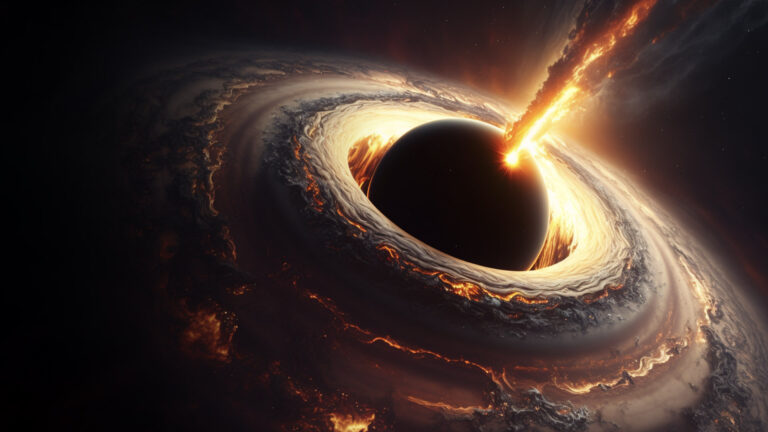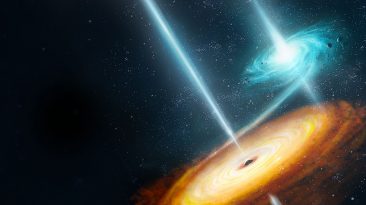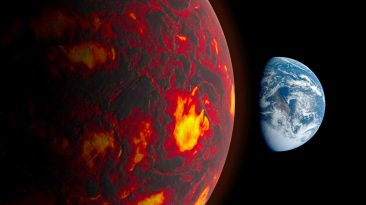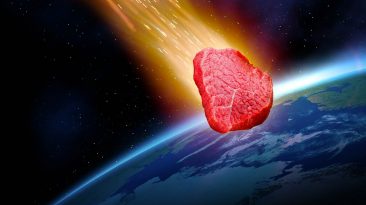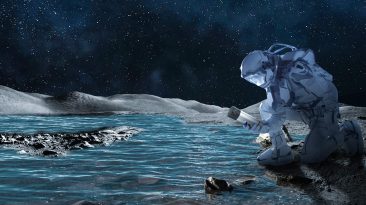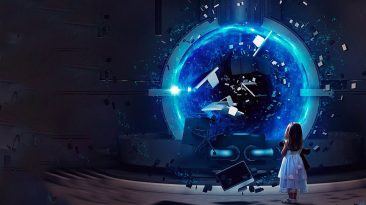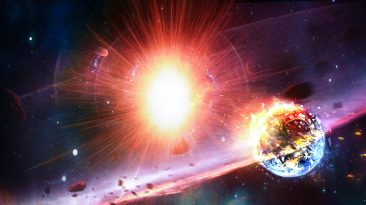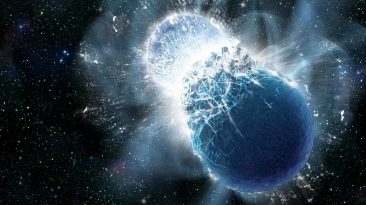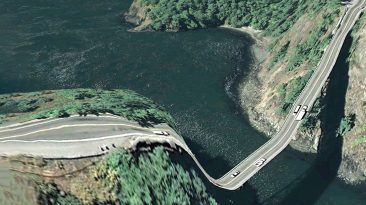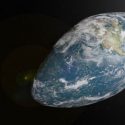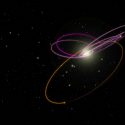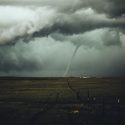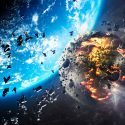It may sound like science fiction, but imagining a battle between a gas giant and a black hole helps us understand just how fragile our Solar System really is. Such a scenario might seem impossible, yet it offers a glimpse into the extreme forces at play in the Universe. By exploring this cosmic showdown, we can better appreciate the delicate balance that keeps our planetary neighborhood stable.
It also reminds us that even the most familiar planets in our sky exist in a vast and sometimes violent cosmic environment. Here are seven facts that show what could happen if a stellar black hole hurtled toward Jupiter and why Earth would be in serious danger.
1. Jupiter is a heavyweight in our Solar System
Jupiter, the fifth planet from the Sun, is the largest planet in our Solar System. It weighs roughly 318 times as much as Earth and contains more mass than all the other planets combined. Its immense size and gravity make it a dominant force in the Solar System, influencing the orbits of many smaller objects.
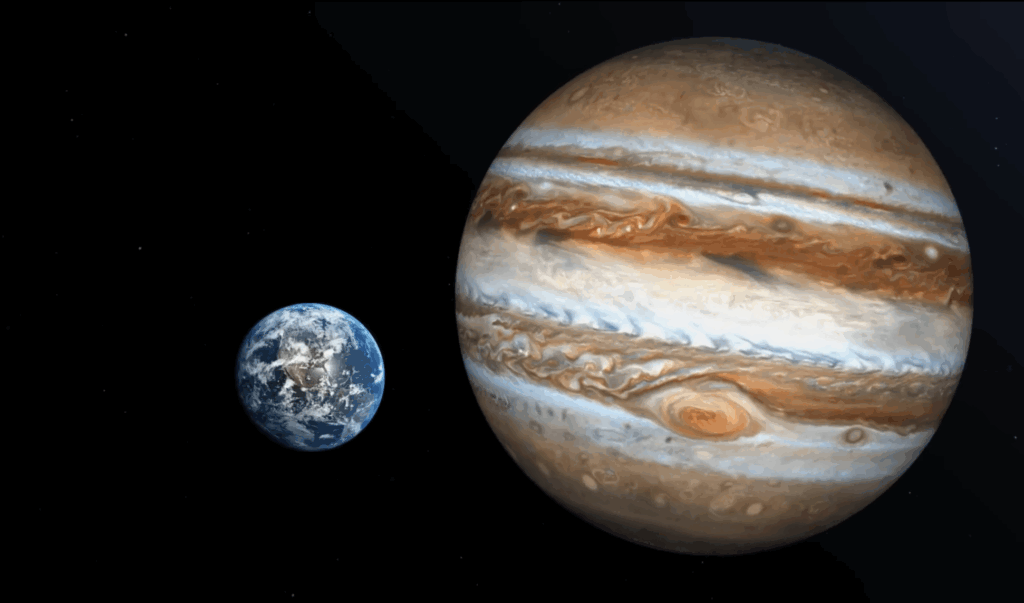
Despite its enormous size, Jupiter would face a formidable opponent in a black hole, whose mass is concentrated into an incredibly tiny space. In a cosmic contest of strength, size alone would not protect the gas giant from the black hole’s extreme gravitational pull. Even the powerful storms and magnetic fields that Jupiter generates would offer little resistance against such an incomprehensibly dense object.
2. Black holes are deceptively small but incredibly dense
A black hole may be smaller than Jupiter in physical size, but its density is extreme. All its matter is packed into a singularity, a point where time and space as we know them collapse. This means that even though it appears tiny, a black hole’s gravity is so strong that nothing, not even light, can escape from it. Stellar black holes, which form from the remnants of massive stars, can range from three to ten times the mass of our Sun while spanning just a few dozen kilometers across.
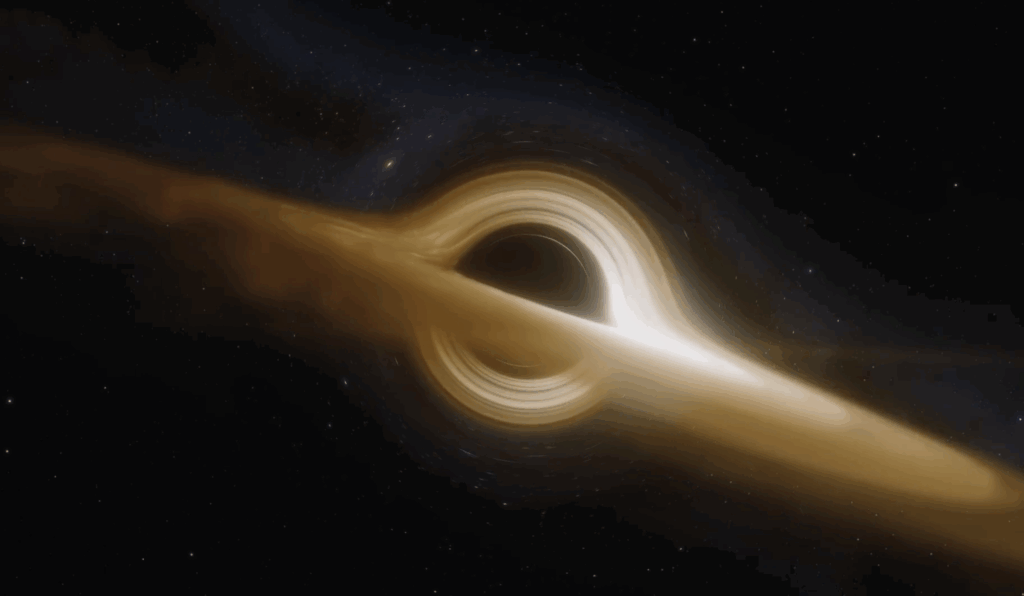
Their gravity is immense, making them one of the deadliest objects in the Universe. If such a black hole entered our Solar System, it would warp the space around it, pulling in anything that strayed too close, including entire planets. The very presence of a black hole nearby would stretch and distort space itself, potentially triggering gravitational waves that ripple across the Solar System.
3. Our Solar System is constantly on the move
Everything in our Solar System is traveling through space at incredible speeds. The Sun, planets, and all surrounding objects move at roughly 720,000 kilometers per hour, orbiting the center of the Milky Way galaxy. This constant motion means that the Solar System is not isolated; it is part of a vast, dynamic cosmic environment.
If a rogue star or black hole were to enter our neighborhood, it could interact with the outer edges of the Solar System in catastrophic ways. Even a relatively small gravitational disturbance could send comets and asteroids careening toward the inner planets, including Earth. The speed and trajectory of these objects could make them almost impossible to detect in time, giving humanity little chance to respond.
4. A black hole could destabilize the outer Solar System
As it approached, a black hole would first pass through the Oort cloud, a shell of icy bodies surrounding the Solar System. Its immense gravity could fling these objects toward the inner planets, sending a hail of comets and asteroids toward Earth. The Kuiper belt, home to Pluto and other icy worlds, would also be thrown into chaos, with some objects ejected entirely from their orbits.
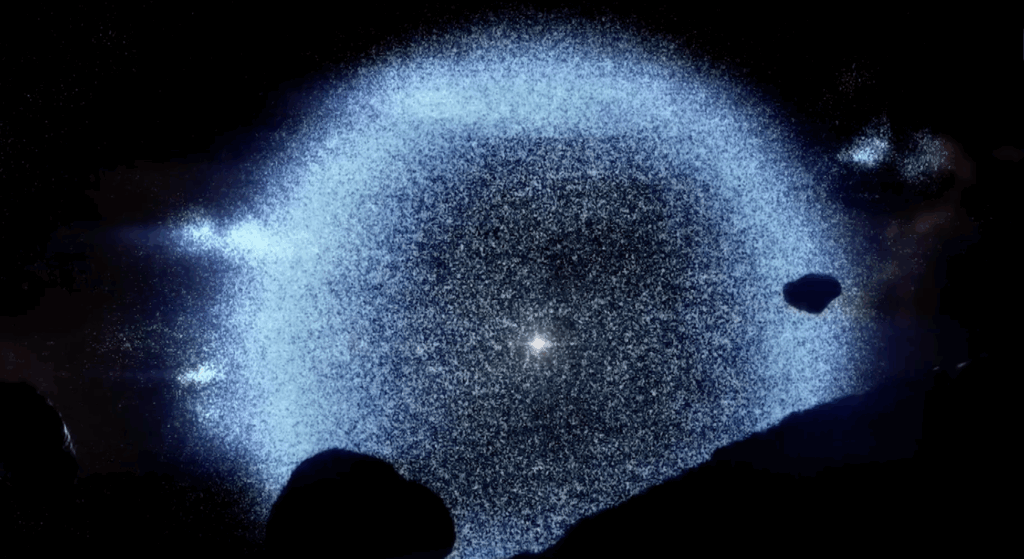
This disruption could trigger a chain reaction, affecting the stability of planets farther in. The outer Solar System, which normally acts as a shield for Earth, would become a source of danger instead, as countless icy fragments were sent hurtling inward. The resulting collisions could reshape the landscape of the inner planets over millions of years, potentially altering conditions for life on Earth.
5. Outer planets would not be safe
The black hole would not stop with the icy fringes of our Solar System. As it moved past Neptune, Uranus, and Saturn, it could strip away gases from these planets and potentially destabilize their orbits. An accretion disk of superheated gas and dust would form around the black hole, feeding its gravity and energy while creating powerful radiation.
The gravitational tug on these outer planets could send them spiraling into unpredictable paths, further endangering Earth and the inner planets. Even the massive planets that seem untouchable would be powerless against the pull of a black hole, highlighting the fragility of our cosmic neighborhood. The disruption of these distant worlds would also affect the delicate gravitational balance that protects smaller objects and keeps the entire system in relative harmony.
6. Jupiter would be overwhelmed
When the black hole reached Jupiter, the gas giant would be unable to defend itself. Its hydrogen and helium gases would be pulled away, leaving the planet vulnerable to complete destruction. As the black hole consumed Jupiter, it would release an explosive wave of ultraviolet and X-ray radiation, which could reach Earth in under an hour, posing lethal risks to life and making the black hole visible in the sky.
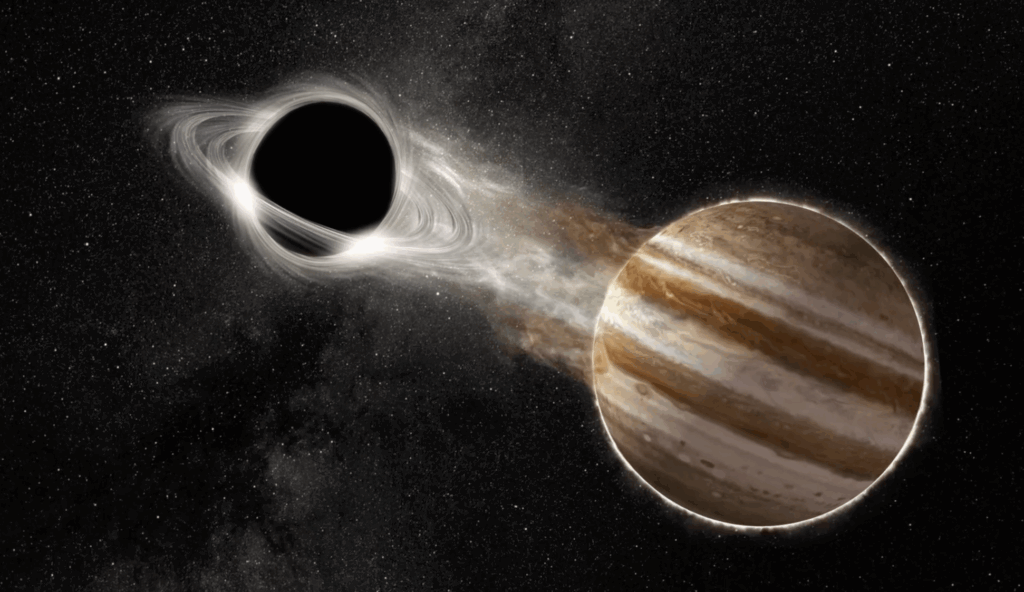
The planet that once protected Earth would become a source of danger, destabilizing the Solar System further. In a matter of hours, Jupiter’s disappearance could trigger chaos across the remaining planets, reshaping the structure of our entire planetary system. Even moons that orbit Jupiter would be flung into space or pulled into the black hole, adding to the widespread devastation.
7. Earth would face long-term consequences
Even if our planet survived the immediate threat, the Solar System would lose its gravitational anchor. Jupiter acts as a protector, keeping asteroids and comets from bombarding Earth and helping maintain its nearly circular orbit. Without Jupiter, the inner planets, including Earth, would be much more vulnerable to collisions and orbital chaos.
A rogue black hole would not just destroy Jupiter, it could destabilize our entire cosmic neighborhood. Life as we know it would face an uncertain future, and the carefully balanced orbits of the planets could take millions of years to stabilize again if they ever did. The loss of Jupiter could also affect the tilt and rotation of other planets, subtly altering climates and ecosystems on Earth in ways we cannot fully predict.


